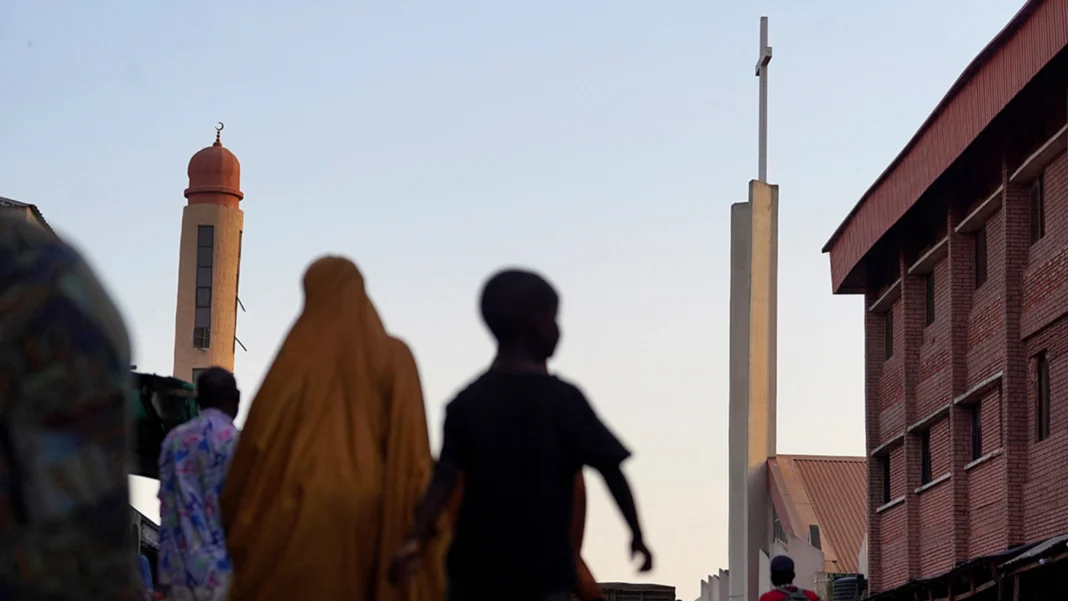U.S. President Donald Trump has warned that his administration will cut off all aid to Nigeria and may even deploy American troops if Nigeria fails to curb what he described as targeted attacks on Christians. Soon after his comments, the U.S. State Department officially placed Nigeria on its list of “Countries of Particular Concern” for severe violations of religious freedom.
This is the second time Nigeria has received this designation under Trump. The first was in December 2020—later reversed by President Joe Biden.
Trump, in a social media post, said the U.S. would go in “guns-a-blazing” if the Nigerian government “continues to allow the killing of Christians.” The Nigerian government has strongly rejected the claim that it is ignoring attacks on Christians.

Many Nigerians—especially Christians—welcome the international attention, hoping it will push leaders to act. But they are also worried that unilateral U.S. military involvement could destabilize the country further.
What Does Violence Against Christians and Muslims Look Like in Nigeria?
Nigeria’s 220 million people are almost evenly split between Christians and Muslims. Unfortunately, insecurity touches everyone—armed robbery, kidnapping, banditry, police violence, and other forms of everyday danger affect people nationwide.
But in the North and Middle Belt, the violence has a unique history tied to the Islamist extremist group Boko Haram, which has been fighting for almost 20 years. Boko Haram wants to overthrow the Nigerian government and establish a strict Islamic state, so its attacks target Christians and Muslims alike, as well as mosques, churches, schools, and government buildings.
A UN estimate says Boko Haram killed about 350,000 people between 2009 and 2021 and displaced nearly four million.

What Has the Nigerian Government Done?
Since Boko Haram emerged in 2009, different administrations—including President Bola Tinubu’s—have promised to defeat the insurgents. Progress has been limited.
In September, after an attack in Borno State killed at least 60 people, Tinubu ordered a major overhaul of military operations.
Past administrations tried different approaches. Former President Goodluck Jonathan even considered offering amnesty to Boko Haram fighters. Although Tinubu’s government has seen some improvement in general security—especially fewer kidnappings—rights groups say more than 10,000 people have been killed in various violent incidents since Tinubu took office in 2023.
How Does the U.S. “CPC” Label Affect Nigeria?
The CPC designation followed months of pressure from American lawmakers and advocacy groups. It signals that the U.S. believes Nigeria tolerates severe violations of religious freedom.
The label allows Washington to impose sanctions on individuals or institutions involved in such violations. Reports suggest the Trump administration is considering punishing officials in northern states that enforce Islamic Sharia law.

Even though it creates diplomatic tension, the designation could pressure Nigerian leaders to take the Boko Haram threat more seriously and strengthen security.
How Are Nigerians Reacting?
Many Nigerians are relieved that the world is paying attention to jihadist violence, especially Christian communities who feel the issue has been ignored for too long.
But there is also deep concern.
Trump’s threat to send U.S. troops or act unilaterally could damage Nigeria’s stability, undermine the Tinubu administration, or even provoke wider conflict. Critics argue that such threats distract from the real issue—defeating Boko Haram and improving nationwide security.
Many Nigerians believe the United States should work with Nigerian security agencies through intelligence sharing, training, and coordinated operations, rather than taking action alone.




